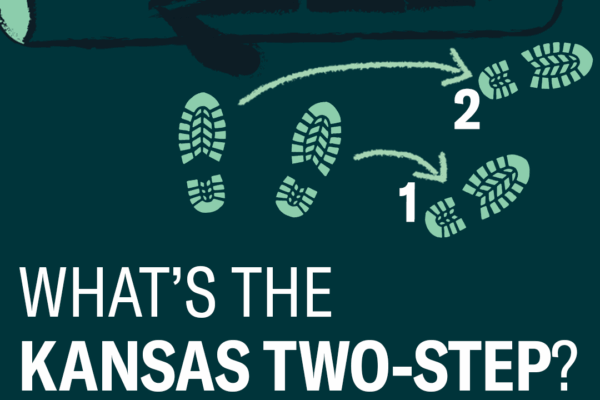OVERLAND PARK, KS - A federal District Court Judge held that there are significant facts in dispute regarding two stops conducted by Kansas Highway Patrol troopers, a move allowing the ACLU’s case accusing the agency of unlawful detentions and canine searches to proceed.
The trooper defendants had moved for summary judgment, arguing qualified immunity shielded them from liability. In June, Judge Kathryn Vratil denied the motions, but the troopers then asked the Court to amend her judgment. At a hearing last week, the Court denied that request, finding that the troopers were not entitled to qualified immunity at this time.
Had the KHP prevailed, the ACLU’s clients Blaine Shaw, Samuel Shaw, and Joshua Bosire would have lost their damages claims.
“We are happy for our clients that this case can move forward,” said ACLU Legal Director Sharon Brett of the court’s decision. “We are looking forward to continuing to push for relief for our clients but also for all drivers traveling through Kansas.”
A state actor can escape responsibility for constitutional violations under the doctrine of qualified immunity. To hold police or other state actors liable for damages, plaintiffs must demonstrate that their constitutional rights were violated, and that those rights were “clearly established” at the time of the violation.
Originally Judge Vratil found that qualified immunity was inappropriate here, quickly denying the KHP’s motions “substantially for the reasons stated” in the ACLU of Kansas’ opposition briefs. The Judge then backed up that ruling during oral argument on September 3, noting that there were significant inconsistencies in the troopers’ stories and that there were genuine issues of fact that a jury would need to resolve.
The ACLU of Kansas filed this suit in 2020 against the Highway Patrol, challenging the agency’s practice of targeting motorists traveling to and from out-of-state as well as routinely employing a technique known as the “Kansas Two Step.”
The lawsuit seeks injunctive and declaratory relief for three named plaintiffs. According to the lawsuit, the KHP stopped and illegally detained the plaintiffs during two traffic stops. With both stops, plaintiffs were driving a car with out-of-state plates and visiting a state that has legalized marijuana use.
The lawsuit said the KHP has a practice of detaining stopped drivers longer than the law allows. After the initial purpose of the stop has been resolved, police are required to let drivers go unless the police have consent or reasonable suspicion to prolong the traffic stop. According to the lawsuit, KHP often fails to do this, either detaining people without reasonable suspicion or using a maneuver nicknamed the “Kansas Two Step” to unlawfully prolong the stop.
When employing the “Kansas Two Step,” an officer issues a ticket or warning and then tells the driver to have a safe trip. Next, the officer turns his or her body, takes two steps toward the patrol car, but returns to the driver’s window to ask if the driver would answer a few more questions.
According to the lawsuit, the KHP uses this technique as a ploy to obtain consent. The trick breaks off an initial traffic detention and then reengages the driver in what KHP says is a consensual encounter. The lawsuit contends that drivers do not actually feel free to leave, and KHP’s use of this maneuver prolongs traffic stops without adequate reasonable suspicion in violation of the Fourth Amendment.
The troopers have already filed an appeal of Judge Vratil’s ruling to the 10th Circuit. Briefing will be complete before the end of 2021. In the meantime, Plaintiffs’ claims for injunctive relief against KHP Superintendent Col. Herman T. Jones continue before Judge Vratil.
# # #
About the ACLU of Kansas: The ACLU of Kansas is the statewide affiliate of the national American Civil Liberties Union. The ACLU of Kansas is dedicated to preserving and advancing the civil rights and legal freedoms guaranteed by the United States Constitution and the Bill of Rights. For more information, visit our website at www.aclukansas.org.
Related Content

Shaw v. Jones

In victory for civil rights, federal judge orders Kansas Highway Patrol to stop the Two-Step and other unconstitutional practices
Stay Informed
Sign up to be the first to hear about how to take action.
By completing this form, I agree to receive occasional emails per the terms of the ACLU’s privacy statement.
By completing this form, I agree to receive occasional emails per the terms of the ACLU’s privacy statement.
